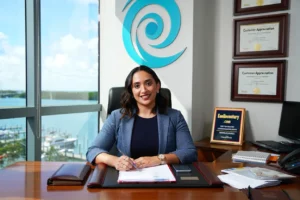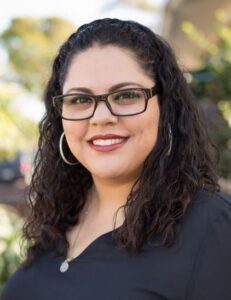Becoming a notary public in New York State is a relatively straightforward process that can open doors to a supplemental income stream, enhance your professional credentials, and provide a valuable service to your community. Notaries public play a crucial role in preventing fraud by witnessing the signing of important documents and verifying the identity of the signers. This comprehensive guide will walk you through every step, from meeting the initial requirements to maintaining your commission.
1. Eligibility Requirements : Are You Qualified?
Before you begin the application process, ensure you meet New York’s eligibility criteria. You must:
Be at least 18 years old.
Be a U.S. citizen or a legal permanent resident. This is critical and often a point of confusion. You do not need to be a New York resident if you have a place of business or employment within the state.
Be a resident of New York State OR maintain a place of business or employment within New York State. This is a key distinction. You can live in New Jersey, Connecticut, or another neighboring state and still be a NY notary, provided you work or have a business address in NY.
Have a good moral character. This generally means no felony convictions, and you must disclose any past convictions or disciplinary actions related to other professional licenses. The Department of State will review your background.
Have the equivalent of a “Common School Education.”
Pass the notrary exam.
2. The Application Process : Step-by-Step Guide
Here’s a detailed breakdown of the application process:
Step 1: Study for the Notary Exam . While New York doesn’t require a formal notary course, thorough preparation is essential. The exam covers New York Notary Public Law, general notary principles, and ethical considerations. Resources include:
New York State Notary Public License Law Booklet: This is your primary study source. Download it from the New York Department of State (NYSDOS) website. [Insert Link to NYSDOS Notary Public Page Here].
Online Practice Tests: Numerous websites offer practice exams. These can help you gauge your understanding and identify areas needing further study.
Notary Public Study Guides: Consider purchasing a study guide from a reputable provider.
Step 2: Schedule and Take the Notary Exam (H3). Exams are administered by the NYSDOS Division of Licensing Services. You can schedule your exam online or by mail.
Exam Fee: The exam fee is $15.
Exam Format: The exam is a one-hour, multiple-choice test.
Passing Score: You need a score of 70% or higher to pass.
Exam Locations: Exams are offered at various locations throughout the state. Check the NYSDOS website for the most up-to-date schedule and locations.
Step 3: Submit Your Application . Once you pass the exam, you’ll receive an application form with your exam results.
Application Fee: The application fee is $60.
Required Documents: You’ll need to submit the completed application form, your exam pass slip, and the application fee.
Oath of Office: You’ll also need to take an oath of office, which can be administered by a current notary public, a commissioner of deeds, or certain other authorized officials. The completed oath form must be submitted with your application.
Submit Your Application After receiving your exam results, you have up to six months to formally submit your application. It’s crucial to stay within this timeline to avoid having to retake the exam.
Step 4: Receive Your Commission . The NYSDOS will review your application and, if approved, issue your notary public commission. This process typically takes several weeks. You’ll receive a notary ID card, which you must use when performing notarial acts.
Step 5: Purchase Your Notary Supplies . While not strictly part of the application process, you’ll need certain supplies:
Notary Seal: A seal (either an ink stamp or an embosser) is required to authenticate official documents. It must include your name, “Notary Public State of New York,” your commission number, and the commission expiration date.
Notary Journal (Record Book): While not legally required in New York, it is highly recommended to keep a detailed journal of all notarial acts. This protects you from liability and provides a record of your activities.
Notary Certificate Forms: While you can hand-write these, pre-printed forms for acknowledgments, jurats, etc., are more professional and efficient.
3. Notary Public Salary and Income Potential : How Much Can You Earn?
A notary public’s income in New York can vary significantly depending on several factors:
Full-time vs. Part-time: Most notaries work part-time, supplementing their income from other sources.
Location: Notaries in high-demand areas (e.g., New York City, major business centers) may have more opportunities.
Type of Notarial Acts: Some notarial acts, like loan signings, can command higher fees.
Marketing and Networking: Your ability to market your services and build relationships with clients (e.g., real estate agents, attorneys, lenders) will directly impact your income.
Fee Structure:
Acknowledgment or Proof: $2.00 per person.
Administering an Oath or Affirmation: $2.00.
Swearing a Witness: $2.00.
Jurat: $2.00.
Income Examples:
Part-time Notary (General Notary Work): $500 – $2,000 per month (supplemental income). This could involve notarizing documents for individuals, small businesses, etc.
Loan Signing Agent: $75 – $200+ per signing. Loan signing agents specialize in notarizing mortgage and real estate documents. This requires additional training and certification (see below).
Mobile Notary: You can charge a travel fee in addition to the standard notary fees. This fee is negotiable and depends on distance and time.
4. Loan Signing Agent Certification (H3): Expanding Your Opportunities
To become a loan signing agent in New York, you’ll need to obtain additional training and certification. This is not required to become a general notary public, but it significantly increases your earning potential. Several organizations offer loan signing agent courses, such as:
National Notary Association (NNA)
Loan Signing System (LSS)
Notary2Pro
These courses cover the intricacies of mortgage documents, loan signing procedures, and best practices.
5. Maintaining Your Commission : Renewal and Continuing Education
Your New York notary public commission is valid for four years. You must renew your commission before it expires.
Renewal Process: The renewal process is similar to the initial application process, but you typically do not need to retake the exam unless your commission has lapsed for more than six months.
Renewal Fee: The renewal fee is $60.
Continuing Education: While New York doesn’t mandate continuing education for general notary work, it’s highly recommended to stay updated on changes to notary law and best practices. The NNA and other organizations offer continuing education courses.
6. Tips for Success as a New York Notary Public
Network: Connect with real estate agents, attorneys, lenders, and other professionals who frequently need notary services.
Market Yourself: Create a website, use social media, and distribute business cards to promote your services.
Be Professional: Always maintain a professional demeanor, dress appropriately, and adhere to ethical guidelines.
Be Accurate: Double-check all documents and ensure you’re following proper notarial procedures.
Protect Yourself: Maintain a detailed notary journal and consider obtaining errors and omissions (E&O) insurance.
Stay Informed: Keep up-to-date with changes in New York notary law.
Understand the Types of Notarial Acts: Familiarize yourself with the different types of notarial acts you can perform, such as acknowledgments, jurats, oaths, and affirmations. Knowing the specific requirements for each is crucial.
Join Professional Organizations: Consider joining organizations like the National Notary Association (NNA). They offer resources, training, and networking opportunities.
7. Frequently Asked Questions (FAQ)
Q: Can a convicted felon become a notary in New York?
A: Generally, no. However, the NYSDOS will review each case individually. Individuals with felony convictions must disclose them on their application.
Q: Do I need a surety bond to become a notary in New York?
A: No, New York does not require notaries to obtain a surety bond.
Q: Can I notarize documents for family members?
A: While not explicitly prohibited in all cases, it’s generally not recommended to notarize documents for close relatives, especially if you have a financial interest in the transaction. It’s best to avoid any potential conflicts of interest.
Q: Can I notarize a document in a language I don’t understand?
A: No. You must be able to communicate directly with the signer and understand the document’s general purpose.
Where to take a NY Notary Exam?
A: You will have to schedule an exam with the NY Department of State.

RON Notary Services Booming in 2026
Remote Online Notarization (RON) has transformed from an emerging technology into a mainstream solution that’s reshaping how Americans authenticate critical documents. As of early 2025,

Finding a Mobile Notary Near Me: Cheap and Fast
Complete Wedding Officiant courses offering convenience and cost savings for various groups. Check it out for yourself today!

Notary Public Classes Online Get Your Certification Remote
Thinking about becoming a notary public? Our 2025 guide covers everything you need to know about online notary classes, state requirements, earning potential as a Notary Signing Agent, and how to get certified. Start your flexible, CAREER TODAY.

